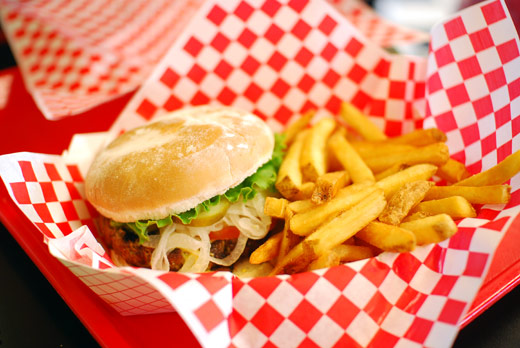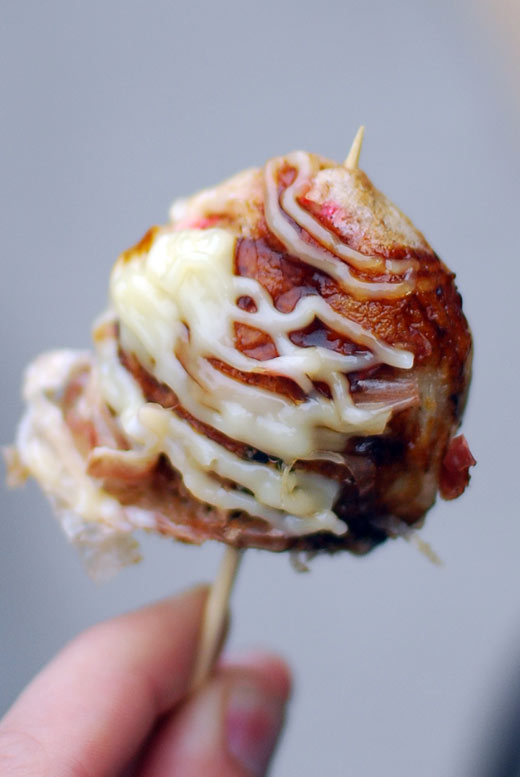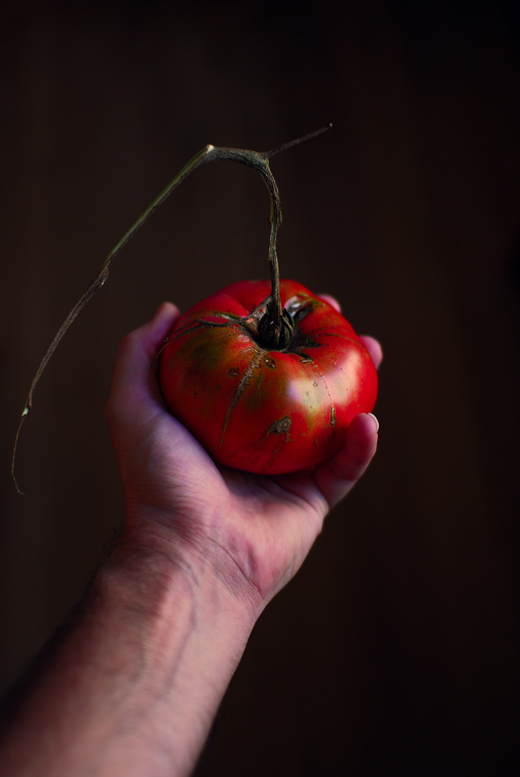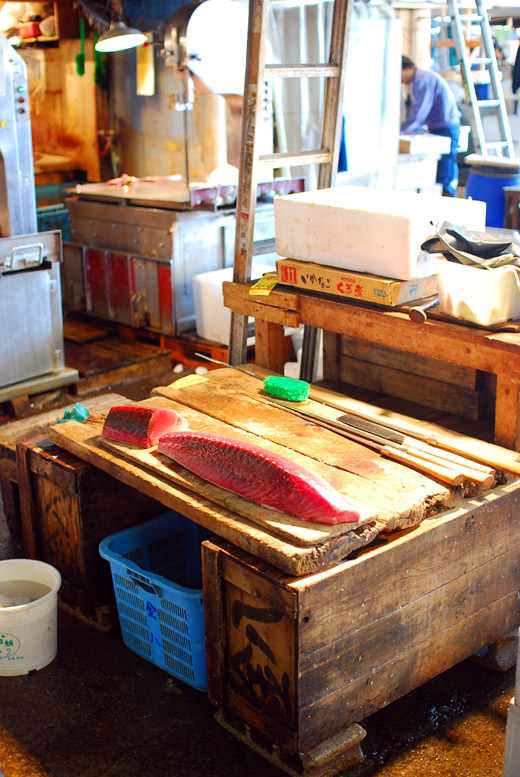I wrote this four years ago and have had it sitting in my draft pile ever since. I never released it immediately because it seemed like an episode from a past life once I was back in Australia, off the road and back on the corporate ladder. I’ve returned and left Cambodia again since writing it, but it seems like a waste to let it continue gathering virtual dust.
—
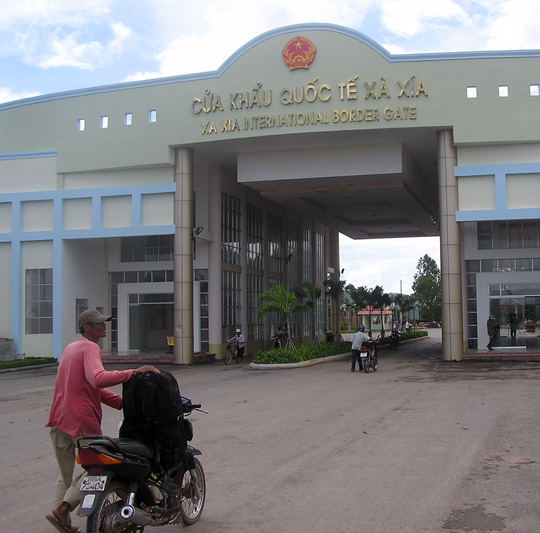
My motodop carrying my pack across the Vietnamese border at Xa Xia. He refused to let me carry it.
[dropcap]T[/dropcap]his is partly prompted by Our Man in Hanoi (subsequently, in Newcastle)’s recollection of his final drive out of Hanoi. I previously wrote about crossing the border from Cambodia to Phu Quoc in Vietnam purely mechanically because I felt that I had to write something, but didn’t know what. It was not easy to leave: life was comfortable in the Phnom Penh expat bubble and I felt like I was doing work that that I had never dreamed existed. People had started paying me for something that I otherwise did for free. On some days I hated the place with a burning passion and remembered that my first words upon looking down at Honda Dreams kicking up dust along a dirt track on the descent into Pochentong Airport were “what the fuck am I doing here?”.
Kep is one of my favourite destinations in the world because it has no obvious attractions. The beach is absent compared to Sihanoukville; the crab at the literally named Psar Kdaam (“Crab Market”) pales in comparison to picking up a few live mud crab at Phnom Penh’s central market and then gently steaming them at home; the architecture reflects the glory of an annihilated era. The weather is clement and there is little else to do than lie in a hammock, stare at the jungle as it envelopes the senescent seaside villas, sip on the local trash pilsener and reiterate to yourself how lucky you are to be there. The opportunity for this to be the final imprint of Cambodia in my memory could not be passed up once I discovered that the nearby border into Vietnam had been opened to foreigners.
After an evening of villa-staring, pilsners and reiteration, my inamorata and I hailed a tuk tuk for 8:00am. The corrugated trail out to the border winds through salt flats, dormant for the wet season and lurid rice fields in full display. In the morning light, the paddies seem an impossibly fecund argument in favour of subsistence living. Kids run out and scream unjaded hello like they do everywhere in Cambodia or stare hungry and glassy-eyed from their palm-frond hovels, World Vision brochure-ready.
About a kilometre from the border post, a swarm of informal motorbike taxi drivers (motodops) surrounded our tuk tuk and informed the driver that there was no chance of his vehicle being able to make it to the rest of the way with the road alternating from mere crenulations to knee-deep death holes.
Let the protracted bargaining period begin.
My expectation at this point was that we’d be sold to a motodop who would then pass us on to their Vietnamese comrade on the opposite side of the border, where we’d once more go through the following process.
After the quickly establishing that we could speak fractured Khmer as well as a food-obsessed swearing Cambodian toddlers:
“Where are you going?”
“To the border”
“The border is a long way from Ha Tien. Where are you going after the border?”
“To the boat in Ha Tien to Phu Quoc.”
“There is no boat in Ha Tien, but we can take you to the bus to Rach Gia.”
There was no talk of swapping drivers at the border, although I assumed the worst.
We alighted from the motorbikes as we approached the two whitewashed sheds that guard Cambodia’s border, leaving our packs with the drivers. As the drivers had established that I could speak Khmer, they wouldn’t steal our packs as they would guess that the only barrier between me paying a Cambodian border guard to shoot them would be cleaning the blood from and fixing the puncture holes in my luggage. Not that I would: travel insurance is thing of guilt-free wonder. There is always some comfort in not carrying any objects truly worth stealing.
The two Khmer border officials were bemused to see us. The younger one spoke excellent American-inflected English and was keen to chat; the older looked like the typical mid-40s Cambodian official who had survived bloody genocide then bribed their way into their post, remaining jovial enough to suggest an undercurrent of unhinged terror.
I’m certain that both had to bribe their way into this position.
From the Cambodian side, the border looked completely fluid with a stream of both Khmer and Vietnamese people crossing with little more than the exchange of a few thousand riel, few even stepping off their motorbikes to pay. Another guard shuttled back and forth collecting alternate fistfuls of hundred riel notes and Vietnamese dong.
Glancing at their handwritten records, the notepad seemed to indicate that we were two of five foreigners who had departed Cambodia through this post in the past month by official means. Their questions were the normal Cambodian inquiries rather than those of border guards, telegraphed from the older guard to younger in Khmer. Are you married? (No, but in a common law sense, yes. In Khmer, the younger guard simply explained this as “culture” ) Do you have children? (No) Why don’t you have children? Is something wrong? You’re very tall/handsome/fat/white. You should have children.
And then, the elder guard, “Ask him if he’s going to Vietnam to fuck young Vietnamese (yuon) women?”
In Khmer, I said “I’m not and we both speak Khmer”.
This registered not the slightest shock. The older guard took my pen with which I was filling out the exit forms and swapped it with his older pen with a comical flourish. I still have no idea what this signified.
The Vietnamese border post looms like a shopping mall designed by cake decorators whose preferred medium is cheap concrete and pastel paints. The interior had a veneer of glossy professionalism skewed by us being filmed at every point by a local television news crew. I like to tell myself that Phnomenon was really that famous. I have no idea what in particular they were filming. Stock footage of the whitest people they could find negotiating the world’s least effective border posts.
The process of entry into Vietnam seemed to involve me passing the same form down a chain of uniformed men in hats, each armed with a different stamp, which come to think of it, is a perfect description for most bureaucracies.
Our same motordops met up with us after avoiding the border posts altogether. I assume that they paid somebody in a hat.
After a quick loop of Ha Tien’s wedding cake shophouses and reeling from the instant modernity of Vietnam, it was evident that if there was a boat, it wasn’t to be trusted to make it to Phu Quoc in the path of an oncoming typhoon. We paid our motodops an extra few thousand riel to get us to the bus station over the bridge from Ha Tien proper. About half way there, the motodops flagged down a passing bus that was headed to Rach Gia, whence, oddly, they went into bat for us against the Vietnamese bus conductor, negotiating the price of the bus down to half what was first quoted. I like a full-service motodop and we were paying them well, but not enough for this sort of camaraderie.
So Cambodia ended twenty kilometres into Vietnam with two Khmer motodops waving us goodbye at the Ha Tien roadside as we sped off into the Vietnamese hinterland.

